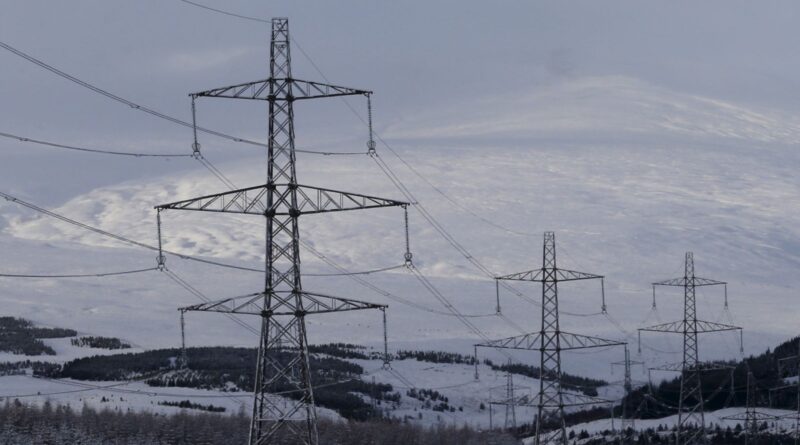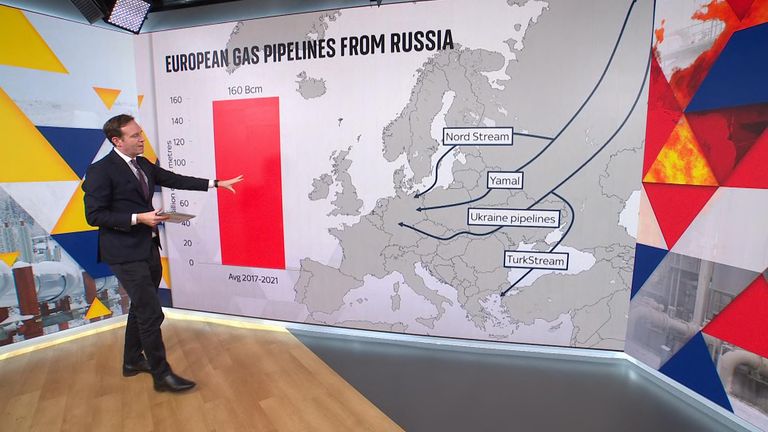Power grid operator scrambles to avert blackout risk | Money News
The UK’s power grid operator has issued a call for electricity providers to bolster output this evening to avert the risk of blackouts.
The National Energy System Operator (NESO) issued an alert “to encourage market actions to increase system margins”.
It was the first such precautionary measure of the winter to date and issued at a time when much of the UK is shivering under sub-zero temperatures.
Money latest: The remortgage boom to hit households
The NESO is worried about a lack of spare capacity in the grid from 4pm until 7pm due to “system constraints”.
The body, which is in public control having been part of National Grid until last autumn, said in an update that it was seeking 1,200 megawatts (MW) of power as part of the so-called system margin notice.
Such notices are a call for a greater safety cushion between power demand and available supply.
The NESO was at pains to point out that it does not signal that blackouts are imminent or that there is not enough generation to meet current demand.
Read more: Why UK energy bills could rise
There is strain on the system due to a lack of wind and bitterly cold temperatures, which stoke stronger demand for electricity and gas.
Lows of minus 16C, the coldest of the winter so far, are forecast for parts of the UK on Thursday.
A yellow warning for snow and ice has been issued for northern Scotland and Northern Ireland from noon on Wednesday until midnight on Thursday.
Sub-zero temperatures are expected across the country for the foreseeable future.
It is the first winter the UK has seen in living memory without coal power forming part of the domestic electricity generation mix.
Read more from Sky News:
Rolls-Royce factory expansion to meet bespoke car demand
Basic questions unanswered by Shein as it eyes London listing
Blow to Treasury as long-term borrowing costs soar
The number of such power stations held in reserve was gradually drawn down under efforts to reduce the country’s carbon footprint.
Ratcliffe-on-Soar power station shut down in September.
The UK has reciprocal arrangements with neighbouring countries to draw power via so-called interconnectors if and when required to help keep the lights on.
National Grid data showed that more than 50% of the UK’s power was being generated through natural gas.
Renewables accounted for just 16% while France and Norway were helping provide 10% of output, with nuclear and Biomass accounting for the bulk of the balance.


